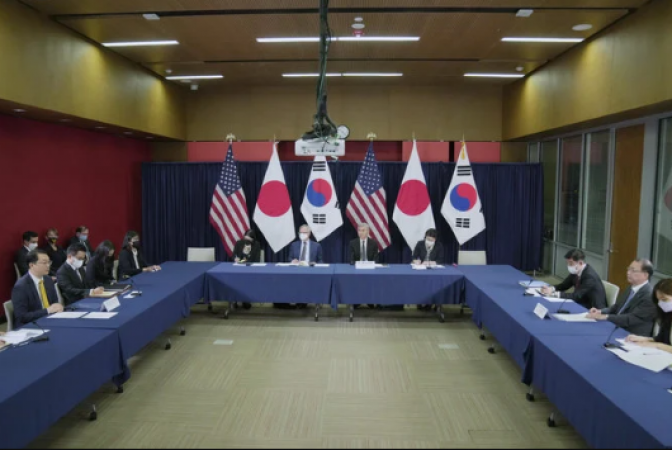
JAKARTA: The United States, South Korea and Japan pledged on Tuesday to consider all available options against the country, including retaliatory strikes, in the wake of North Korea's unprecedented missile tests that have escalated regional tensions.
This month, North Korea tested its most advanced intercontinental ballistic missile yet, and for the first time since the Korean War, a missile crossed the de facto maritime boundary and landed close to South Korean waters.
US special envoy for North Korea Sung Kim met his South Korean counterpart Kim Gun and a senior Japanese Foreign Ministry official, Takahiro Funakoshi, in the Indonesian capital Jakarta to discuss Pyongyang's threat to regional security.
Also Read: A Man with a Mission: Tanvir Logani
"We will examine all options, including counterstrike capabilities," said Funakoshi of the Japanese Foreign Ministry's Asian and Oceanian Affairs Bureau.
The discussion, which was held at the US Embassy in Jakarta and preceded conferences in Seoul and Tokyo this year, was led by Sung Kim, who is also the US ambassador to Indonesia.
The envoys' promise comes after their countries implemented sanctions this month against North Korean individuals and organizations in retaliation for a wave of nuclear tests by Kim Jong Un's government.
Gunn claimed that despite Chinese and Russian vetoes of a US-led effort to tighten sanctions at the United Nations earlier this year, Pyongyang had become more aggressive in its nuclear threat, and that the three allies would harmonize sanctions.
Also Read: Small islands request the opinion of the UN Sea Court on climate change
The South's representative claimed that North Korea's nuclear threat was growing more pronounced and aggressive.
The international community will respond firmly and collectively to any additional provocations from North Korea. According to Funakoshi, as a result of the increased missile activity, Washington, Seoul and Tokyo have raised their security cooperation on North Korea to new heights.
"We earnestly request that North Korea respond to our call for talks. We stand by our commitment to denuclearization," he said.
Seoul and Washington have been warning Pyongyang for months that it is preparing to conduct its seventh nuclear test.
After overseeing the launch of the Hwasong-17 "Monster" missile in November, Kim said he wanted North Korea to have the most powerful nuclear arsenal.
Also Read: Angry rural residents fuel antigovernmental demonstrations in Peru
According to the official Korean Central News Agency, Kim announced at a politburo meeting last month that 2023, which will mark 75 years since the founding of the nation, will be a "historic year".